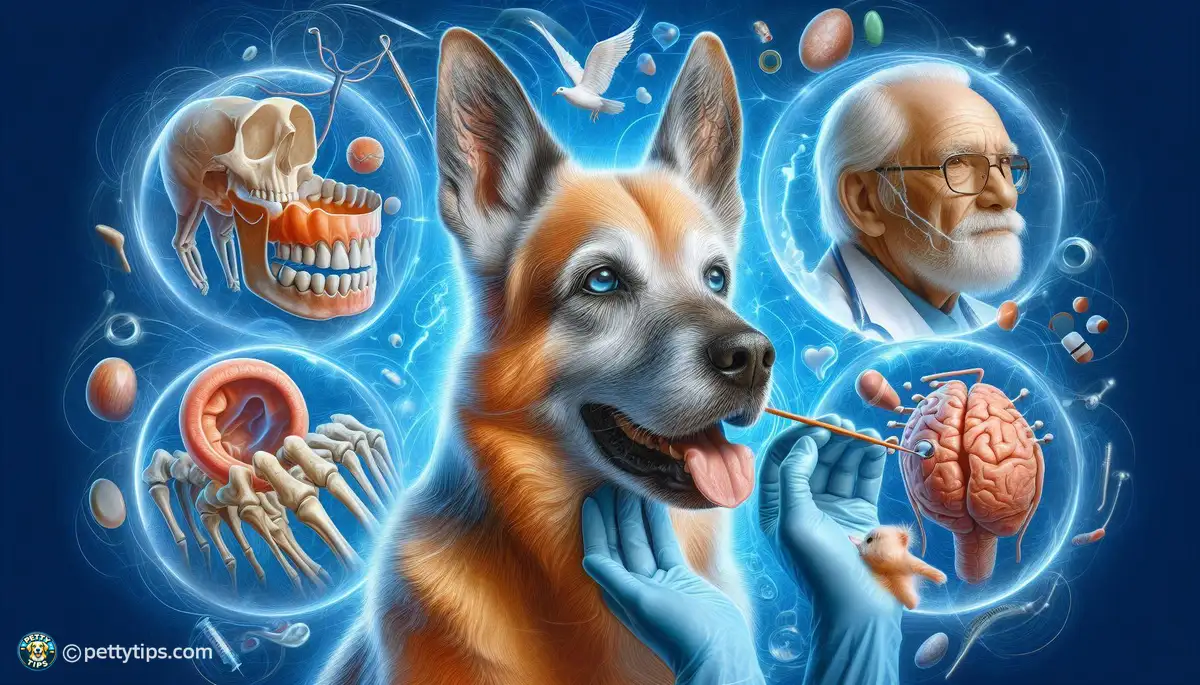
The Vital Role of Routine in Managing Separation Anxiety in Pets
Giselle Orta - Oct 13, 2024 - 7 min read


As our furry companions age, they become more susceptible to various health issues, just like humans do. Understanding these common health issues in senior dogs is crucial for providing them with the best possible care and ensuring they enjoy a comfortable and happy life in their golden years. In this comprehensive guide, we'll delve into the most prevalent health concerns that affect senior dogs and explore how pet owners can recognize the signs and symptoms early on to seek appropriate veterinary care.
Senior dogs undergo a series of physiological changes as they age, much like humans. While some of these changes are natural parts of the aging process, others may indicate underlying health issues. One of the most noticeable changes is a decrease in activity level and energy, often accompanied by stiffness and joint pain. Additionally, senior dogs may experience changes in their coat and skin, such as dryness, thinning, or the development of lumps and bumps. Understanding these age-related changes can help pet owners differentiate between normal aging and potential health problems.
Regular veterinary check-ups are essential for senior dogs to detect any health issues early on and provide timely intervention. During these check-ups, veterinarians can perform thorough physical examinations, assess vital signs, and conduct diagnostic tests to screen for age-related health concerns. Moreover, veterinarians can provide valuable guidance on nutrition, exercise, and preventive care tailored to the specific needs of senior dogs. By scheduling routine visits to the vet, pet owners can stay proactive in managing their senior dog's health and well-being.
proper nutrition plays a crucial role in maintaining the health and vitality of senior dogs. As dogs age, their nutritional requirements may change due to factors such as decreased activity level, changes in metabolism, and age-related health conditions. It's essential to feed senior dogs a balanced diet that is rich in high-quality protein, vitamins, and minerals, while also being mindful of their calorie intake to prevent obesity. Additionally, certain dietary supplements, such as glucosamine and omega-3 fatty acids, may help support joint health and cognitive function in senior dogs.
Senior dogs are prone to a variety of health issues, ranging from arthritis and dental disease to cognitive decline and cancer. Recognizing the signs and symptoms of these common health concerns is crucial for early detection and prompt treatment.
Arthritis is a prevalent condition in senior dogs, characterized by inflammation and stiffness in the joints. Common signs of arthritis include limping, reluctance to exercise, and difficulty getting up or lying down. While arthritis cannot be cured, it can be managed through various treatment options, including pain medications, joint supplements, physical therapy, and weight management. Additionally, providing soft bedding and gentle exercise can help alleviate discomfort and improve mobility in senior dogs with arthritis.
Dental disease is another common health issue that affects senior dogs, often caused by a buildup of plaque and tartar on the teeth and gums. Signs of dental disease may include bad breath, swollen or bleeding gums, difficulty eating, and loose or missing teeth. Untreated dental issues can lead to more severe health problems, such as infections and organ damage. To maintain good oral health in senior dogs, regular dental check-ups and professional cleanings are essential, along with daily tooth brushing and dental chews.
Cognitive decline, or canine cognitive dysfunction (CCD), is akin to dementia in humans and affects many senior dogs as they age. Symptoms of CCD may include disorientation, changes in sleep patterns, decreased interest in activities, and loss of housetraining. While CCD cannot be reversed, certain medications and supplements may help manage symptoms and slow the progression of the disease. Additionally, providing mental stimulation through interactive toys, puzzle games, and obedience training can help keep senior dogs' minds active and engaged.
While some health issues in senior dogs are inevitable, there are several preventive care strategies that pet owners can implement to promote their furry companions' overall health and well-being.
regular exercise is essential for maintaining the physical and mental health of senior dogs. Low-impact activities such as short walks, swimming, and gentle play sessions can help keep senior dogs' muscles strong, joints flexible, and minds stimulated. However, it's crucial to tailor the intensity and duration of exercise to your dog's individual needs and limitations, taking into account factors such as age, breed, and existing health conditions.
Obesity is a significant risk factor for various health issues in senior dogs, including arthritis, diabetes, and heart disease. To prevent obesity and maintain a healthy weight, pet owners should monitor their senior dogs' calorie intake and provide them with a balanced diet consisting of lean protein, complex carbohydrates, and essential nutrients. Additionally, regular exercise and portion control can help prevent excessive weight gain and promote a longer, healthier life for senior dogs.
Proper dental care is crucial for preventing dental disease and maintaining good oral health in senior dogs. Pet owners should brush their senior dogs' teeth daily using a pet-specific toothbrush and toothpaste, as well as provide dental chews and toys designed to promote dental hygiene. Additionally, scheduling regular dental check-ups with a veterinarian for professional cleanings and examinations can help prevent the progression of dental disease and ensure a healthy mouth for senior dogs.
As our beloved canine companions enter their senior years, it's essential to be proactive in monitoring their health and addressing any issues that may arise. By understanding the common health issues that affect senior dogs, pet owners can take the necessary steps to provide their furry friends with the care and support they need to enjoy a happy and comfortable life in their golden years. Through regular veterinary check-ups, proper nutrition, preventive care strategies, and attentive monitoring, we can ensure that our senior dogs receive the love and attention they deserve for years to come.